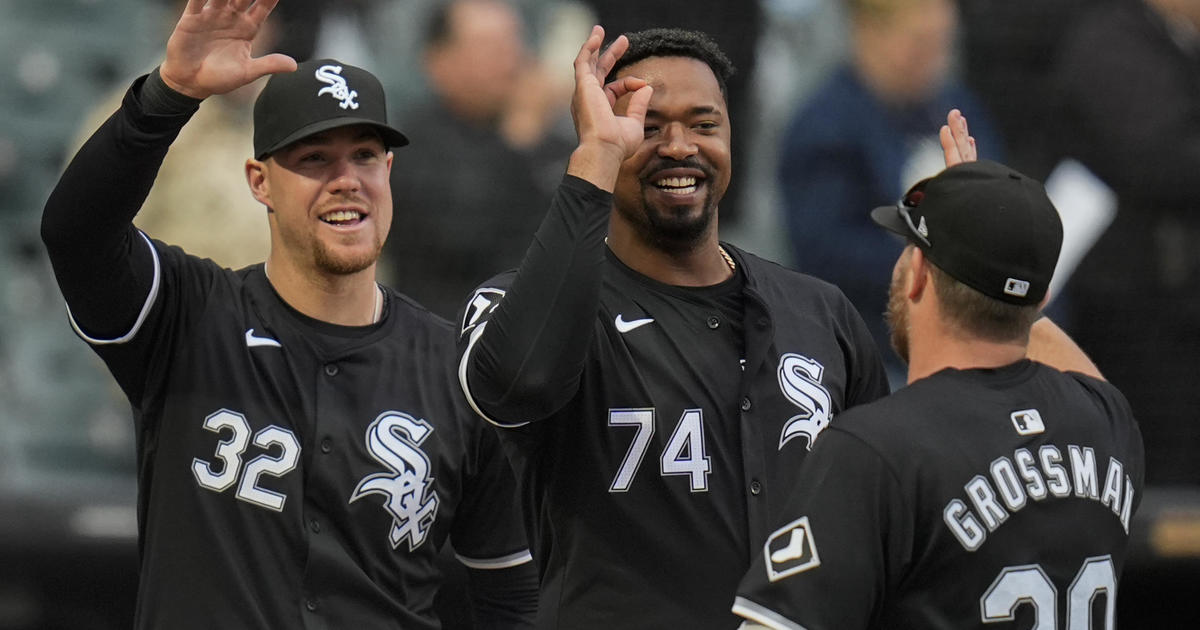Probert Had Chronic Traumatic Encephalopathy
Bob Probert was able to see his former team the Chicago Blackhawks win a Stanley Cup before his passing, but before he passed he asked his brain to be donated for research. Researches studying his brain found that the enforcer had CTE.
Bob Probert knew the fierce pounding he dished out and received over 16 seasons as an NHL enforcer was taking its toll as he got older. That's why he wanted his brain to be analyzed once he died.
Even though heart failure ultimately ended his life last July at age 45, Probert also was living with a damaged brain.
Researchers at Boston University said Thursday that Probert had the degenerative brain disease Chronic Traumatic Encephalopathy. The disease was found through analysis of brain tissue donated by Probert.
He is the second hockey player from the program at the Center for the Study of Traumatic Encephalopathy to be diagnosed with the disease after death. Reggie Fleming, a 1960s enforcer who played before helmets became mandatory, also had CTE.
CSTE is a collaboration between Boston University Medical School and the Sports Legacy Institute that is attempting to address what it calls the "concussion crisis" in sports. The group has been at the forefront of research into head trauma in sports, and has received a $1 million gift from the NFL, which has pushed for better treatment of concussions.
The family of former Bears safety Dave Duerson agreed to donate his brain to the study after he committed suicide last month at the age of 50.
During his years as one of the most feared players in the NHL, Probert had 3,300 penalty minutes -- fifth on the league's career list. He was one of the toughest and most prolific fighter of his time. Probert, who struggled to overcome drinking problems during his time in the NHL, played for the Detroit Red Wings from 1985-94 and the Chicago Blackhawks from 1995-2002.
"We are only beginning to appreciate the consequences of brain trauma in sports," said Chris Nowinski, the Sports Legacy Institute's co-founder and chief executive officer. "Early evidence indicates that the historical decision not to discourage contact to the head was an enormous mistake, and we hope aggressive changes continue to be made to protect athletes, especially at the youth level."
The findings first were reported by the New York Times and the Globe and Mail in Toronto on Wednesday night.
"Bob told me he wanted to donate his brain to Boston University after learning about the research on 60 Minutes," his widow, Dani, said in a statement released by the institute. "His sole motivation was to make sports safer for our children. Bob was a great husband and father, and we miss him every day."
Several of the NHL's biggest stars, including Pittsburgh's Sidney Crosby, have missed time this season due to the effects of concussions. Crosby hasn't played since absorbing a pair of hits in consecutive games in early January.
Commissioner Gary Bettman said during the All-Star break that concussions are up this season, but quickly noted the increase seems to be caused by accidental or inadvertent situations, instead of by head contact from another player.
Although the NHL has instituted a new rule making blindside lateral hits to the head illegal, and the league's general managers will discuss later this month whether further contact to the head should be banned, fighting long has been a major part of the pro game.
There have been no signs that the NHL has interest in changing or eliminating that popular aspect of the sport.
"The findings are interesting and certainly something we'll add to a much broader body of knowledge," NHL deputy commissioner Bill Daly told the Associated Press in an e-mail. "But we're not going to react or make changes based on findings related to one player, especially when it's impossible to identify or isolate one of many variables that may have factored into the conclusions reached, and when there is no real 'control group' to compare his results to."
The detailed findings of Probert's brain tissue won't be released until they are submitted to an academic medical journal. His family requested the diagnosis be made public so awareness could be raised of the dangers of brain trauma in sports and encourage greater efforts to make sports safer for the brain, SLI said.
"The diagnosis of CTE in Probert's brain is not necessarily an indictment of hockey, as he received brain trauma during hockey fights as well as outside of sports, including a major car accident," Nowinski said. "Reggie Fleming, the only other NHL player diagnosed with CTE, also was an enforcer, so we need further study before this research can truly inform that ongoing, and important, debate."
Fleming died in 2009 at the age of 73 with dementia, after 30 years of worsening behavioral and cognitive difficulties.
Dani Probert said her husband showed a mental decline in his 40s, displayed new and growing problems with short-term memory, attention and a short temper. Those are all symptoms consistent with those showed by other athletes with CTE.
During the last year of Probert's life, Dani Probert said her husband told her he thought he had three or four "significant concussions." But when talking about "getting his bell rung," which the institute says is a concussion by definition, Probert told his wife that his total jumped to "over a dozen."
"In my heart of hearts, I don't believe fighting is what did this to Bob," Dani Probert told the New York Times. "It was hockey -- all the checking and hits, things like that."
Nowinski said last month more than 300 athletes, including 100 current and former NFL players, are on the CSTE's brain donation registry. There are 65 cases currently being studied. The CSTE "brain bank" currently has 68 specimens.
Dr. Ann McKee, the co-director of the CTSE -- which it says is the largest brain bank in the world, has analyzed the brains of 40 former athletes and found that more than 30 showed signs of CTE. That includes 13 of 14 former NFL players, college and high school football players, hockey players, pro wrestlers and boxers.
CTE, originally referred to as "dementia pugilistica" because it was thought to only affect boxers, is a progressive brain disease believed to be caused by repetitive trauma to the brain, including concussions or subconcussive blows.
It also is believed that other undetermined factors, such as genetic predisposition, put some people at greater risk of developing the disease.
Keith Primeau, a former All-Star who was forced to retire in 2006 because of concussions during a 15-season NHL career, is among those who have decided to donate their brain.
Primeau and Probert were Red Wings teammates for four seasons.
"Hockey continues to make positive steps to protect players from concussion and brain trauma," he said. "I hope the findings from the study of my friend, Bob Probert, will accelerate that momentum throughout all levels of the game."
Copyright 2011 by STATS LLC and The Associated Press. Any commercial use or distribution without the express written consent of STATS LLC and The Associated Press is strictly prohibited.



